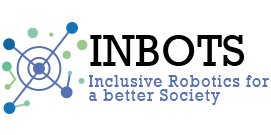Yolanda Sanchez-Urán Azaña, professor on Labour and Social Security Law at Universidad Complutense de Madrid, was invited to attend the event ‘Future of labour & digital platforms’ hosted by the Spanish Association of Digital Economy (Asociación Española de la Economía Digital) where she participated in the talk about ‘Employment and digitisation: where is the work of the future going?‘
This event is based on the premise indicated by the report Independent Work: Choice, Need and Economy on Demand by McKinsey, which states that between 20 and 30% of the working-age population in the EU-15 and the United States make some kind of profit on their own. Of these, 15% use digital platforms to earn revenue. It is one of the phenomena that today’s media headlines are seeing when it comes to how the way we work is changing; a change that is irretrievably associated with the ever-increasing opportunities that technology and the transformation of consumption and production habits offer us, and that also poses numerous challenges from a regulatory, economic and social point of view.
During the argue, Yolanda Sanchez-Urán pointed that in the Social Economy of the Digital Market it is necessary to start from the principle of socially and legally responsible technological innovation. She defended that law, in all its aspects, must be oriented towards the promotion of technological innovation and, with a measured and balanced discourse, face a regulation that weighs up all the interests affected and, in particular, those of companies that are committed to technological innovation and those of workers; both require legal, social and economic security and certainty. She also specified that, if we are talking about Robotics, it must be inclusive, avoiding technopessimistic discourses and clearly orienting towards opportunities for all the actors involved.

